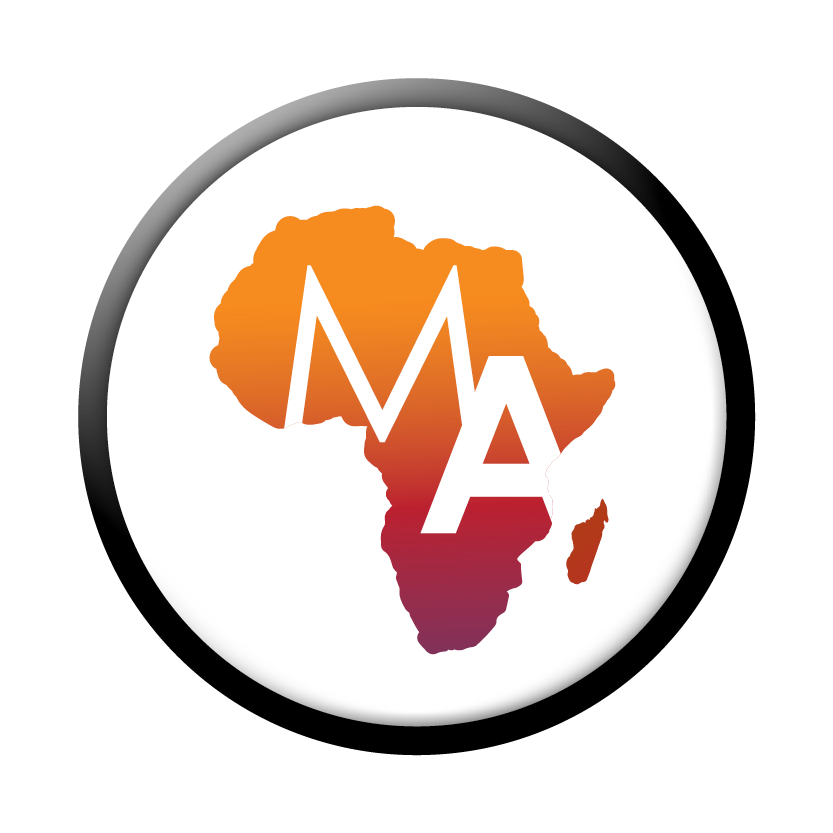Original Story Published by: Staff writer
Photo Source: DDR Website
(Above) Djibouti Data Center
An interview with John Melick, cofounder and Chairman of the award winning Djibouti Data Center (DDC). The DDC is a privately held company, which launched commercial operations in Djibouti in 2013. The DDC is the only Tier 3 standard, carrier-neutral data center in east Africa with direct access to all major international and regional fiber optic cable systems connecting Europe, the Middle East, and Asia markets with Africa. The DDC serves as a strategic hub in the region for global and regional network operators, ISPs, MNOs, CDNs, and large content providers who are rapidly expanding services to many of the fastest growing and emerging markets in Africa. In 2016, the DDC launched the Djibouti Internet Exchange (DjIX), a neutral and independent IXP in Africa, collocated in the DDC ecosystem. The DjIX offers high speed, reliable, and resilient service to peering partners who are striving to reduce network latency and costs for Internet users in Africa. For more information about the DDC and DjIX, visit www.djiboutidatacenter.com
What is driving the requirements for more international and regional fiber cable capacity and corresponding data center growth in Africa?
The global Internet is growing at an exponential rate, bringing with it new ways of communicating, transacting business, socializing, and transforming just about every aspect of daily social and economic life. Yet, the benefits of the Internet have not always been evenly distributed. In Africa, despite a slow start, Internet use is now rapidly accelerating, and its transformative effects are increasingly accessible.
The Information Technology (IT) industry has been one of the major drivers of economic growth in Africa, growing by 40% for the past ten years. In the past five years, submarine cables have brought a twenty-fold increase in international bandwidth. Mobile subscriptions in Africa are expected to surpass 1 billion this year, and mobile broadband access accounts for more than 90% of Internet subscriptions. The growth in IT and availability of Internet access is ushering in the rise in demand for data center services across Africa, largely due to the increase in demand for content, lower latencies, and cheaper Internet prices. Data centers are the primary source of collocation, and local and regional Internet Exchange Points are increasingly becoming available for peering to large content providers, ISPs, and others who aim to serve growing user communities in Africa.
Why build a data center in Djibouti?
Arguably, Africa is the fastest growing region in the world. Djibouti is a small country strategically located on the east coast in the Horn of Africa, and boasts one of Africa’s most advanced international telecom networks. Djibouti Telecom, the incumbent fixed, mobile, and Internet service provider, operates sate of the art fiber cable landing stations serving eleven international and regional fiber cable systems, and more planned for the future.
The DDC was conceived as a carrier neutral data center – I call it an ecosystem - which serves as a strategic gateway hub to the region. It is complimentary to the many fiber cable systems landing in Djibouti that connect Europe, the Middle East, and Asia Pacific regions with Africa. One of the many historical challenges in Africa is that digital super highways (submarine cables) have been able to bring "buyers and sellers" to the region, but there have been few shopping malls (neutral data centers) to sell and buy at once the buyers and sellers get there. Our vision when we conceived and built the DDC was to change this. Over the last five years, the carrier neutral DDC has played a significant roll in enabling a key regional ecosystem – shopping mall if you may - that enables network operators, MNOs, ISPs, and large content providers to establish a physical presence "in-region" with direct access to all major international and regional fiber optic cable systems. Fiber cable systems in conjunction with neutral data centers are now beginning to work in harmony to provide platforms for expansion to many of the fastest growing and emerging markets in Africa.
Why are carrier neutral data centers important?
In a non-carrier neutral environment, a customer may only have one and/or limited options for connectivity and service. Customers in a data center tied to one specific carrier or a dominant provider can fall victim to high prices due to lack of competition and limited bandwidth options. This puts them at the mercy of whatever provider the data center is tied to.
Carrier neutrality in this case refers to data centers that do not compete in the marketplace with the very customers they serve, and that allow interconnection between many fiber cable systems, cable head backhaul providers, and interconnection providers. Carrier neutral data centers provide core services like collocation, hosting, meet-me-room, and fiber cable system cross connection services. Many even have convenient access to neutral Internet Exchange Points (IXPs), where Internet service providers can peer freely to keep local and regional IP traffic in the region, thereby reducing latency, improving network performance, and improving the end user experience. Carrier neutral data centers are not tied to any single service provider, thereby providing diversity and flexibility for the customer seeking service. In a neutral data center environment, one has several options to choose from for key interconnection services, and may have multiple options for managing and improving commercial and operational terms. From the flexibility side, each and every service providers network is unique. International and regional fiber cable systems cover different routes, and having access to a variety of different fiber cable systems and cable head backhaul providers gives the customer the added benefit of diversity and redundancy.
What role are Internet Exchange Points (IXPs) playing in the development and expansion of the Internet in Africa?
The significance of neutrality is not mutually exclusive to data centers alone. In Africa, neutral and open Internet Exchange Points (IXPs) are growing rapidly throughout the region. For example, in 2016 we launched the Djibouti Internet Exchange (DjIX), which is collocated in the neutral DDC. The DjIX is an open and neutral peering point where each network operator and participant is treated equally and fairly. Before the growth of IXPs in Africa, network and content providers, as well as ISPs, had to exchange Internet traffic outside of the region or use higher cost IP transit options in the region. The local exchange of Internet traffic in a neutral IX can keep local Internet traffic local and in region. This can significantly reduce costs for network operators and content providers, and add material value by being a vehicle to reduce latency and improve the resilience and performance of their networks. All of this results in an improved end-user experience in Africa.
Organizations like the Internet Society, which acts as a neutral and internationally recognized body devoted to the support of Internet infrastructure globally, are helping a lot in Africa. Among many initiatives, they have played a key role to promote the development and expansion of neutral IXPs in the region through funding initiatives, conferences, educational workshops, and fund raising from industry and institutional sources. The African IXP Association (Af-IX) is a group of Internet exchange point operators in Africa who have come together by a shared need to exchange knowledge and support for one another. The Af-IX is growing steadily, and they are now an organized group of 44 active IXPs located in 40 cities and 32 countries in Africa.
The growing number of IXs in Africa, all of whom need access to fiber cable capacity, network connectivity, and data center environments for convenient and reliable collocation, is further evidence of Internet development in the region.
“I believe that there is a special opportunity now for a neutral data center company with the unique knowledge and proven experience in Africa to emerge and fill an important gap – the deployment of a pan-Africa network of neutral data center facilities under the leadership of a trusted and seasoned team.”
What trends are emerging in Africa for new fiber cable systems being planned to meet growing demand?
In Africa, fiber cable system investors and consortiums are seriously reevaluating the traditional model of landing new cable systems in incumbent or dominant carrier operated cable landing stations. Those involved are increasingly recognizing that due to advancements in technology, the operational specifications and requirements for cable landing facilities are very similar to those of Tier 3 and above data centers. They both need robust and reliable power, cooling, security, and options for local, regional, and international connectivity. By identifying neutral third parties who can build and operate a combined cable landing facility and a carrier neutral data center - especially in many markets in Africa where carrier neutral data centers do not exist - they can develop and create a commercial and operational environment that will be very attractive to potential network operators and large content providers who are building, investing and acquiring capacity on these systems to meet their needs. This new architecture can greatly simplify network design while offering access to a dense, rich ecosystem of networks. It can also allow easy, secure, and lower cost access for those collocating and interconnecting at a combined cable landing station and neutral data center.
What can developing and emerging markets in Africa learn from historical trends in more developed markets globally?
Fiber cable consortiums and the large content providers who are building and investing in new systems prefer diverse, flexible, and competitively priced options for those interconnecting at their respective cable landing stations. They know that having these advantages will significantly contribute to the success of their systems, and insure a favorable return on their investment. Further, they know that if neutral data centers are conveniently located at or nearby cable landing stations, customers will have favorable collocation and backhaul options that will make it easier for them to offer end users high quality service options, lower latencies, and overall improvements in network performance. If emerging markets in Africa are to realize the full benefits of a growing digital economy that Internet can offer, these markets need to transition from basic connectivity to interconnectivity of networks. This can only happen if the development of connected infrastructure is enabled and encouraged. It is readily apparent that the Internet has had a profound impact on the availability of entertainment, video, social media, gaming, and soon virtual reality options for the end user. What is equally as important is that the Internet has been a proven foundation for progress and improvement in other key social and economic areas such as healthcare, education, agriculture, financial, utilities, and even transportation infrastructure. In essence, it touches something just about every single person uses and needs in daily life. The benefit of carrier neutral data centers located in or close by a cable landing station are undeniable, and are clearly evident in the historical progression of more developed markets.
What’s the next phase of data center development in Africa look like?
Several new cable systems are in the planning and development stages in Africa. In addition to new regional deployments, international systems will add additional capacity and connectivity between many of the largest markets in Africa, and enable even greater connectivity to other major regions in the world. These systems can benefit greatly if they land in or close by neutral data centers, and help change the data center landscape in Africa.
It is important though, for new cable system planners to choose their data center and cable landing station partners carefully – preferably a company that has demonstrated it can organically grow a successful data center business in Africa. Planning, building, operating, and successfully commercializing a data center in the region comes with many challenges unique to Africa. Choosing a data center partner with a proven track record of performance in Africa will significantly mitigate the risks and challenges. The barriers of entry to many markets in Africa are very real, and a proven track record in operating similar facilities in the region, managing and navigating associated risks and opportunities, and leveraging a diverse base of existing satisfied customers - many of whom have other data center requirements in the region - will accelerate the benefits to all.
I believe that there is a special opportunity now for a neutral data center company with the unique knowledge and proven experience in Africa to emerge and fill an important gap – the deployment of a pan-Africa network of neutral data center facilities under the leadership of a trusted and seasoned team. The combined operational and commercial synergies associated with a pan Africa data center network will result in more efficient economies, lower cost structure, and will streamline processes that will improve productivity and performance. All of this will be to the benefit of customers and end users who will see significant improvements in service options, all at a reduced cost.









